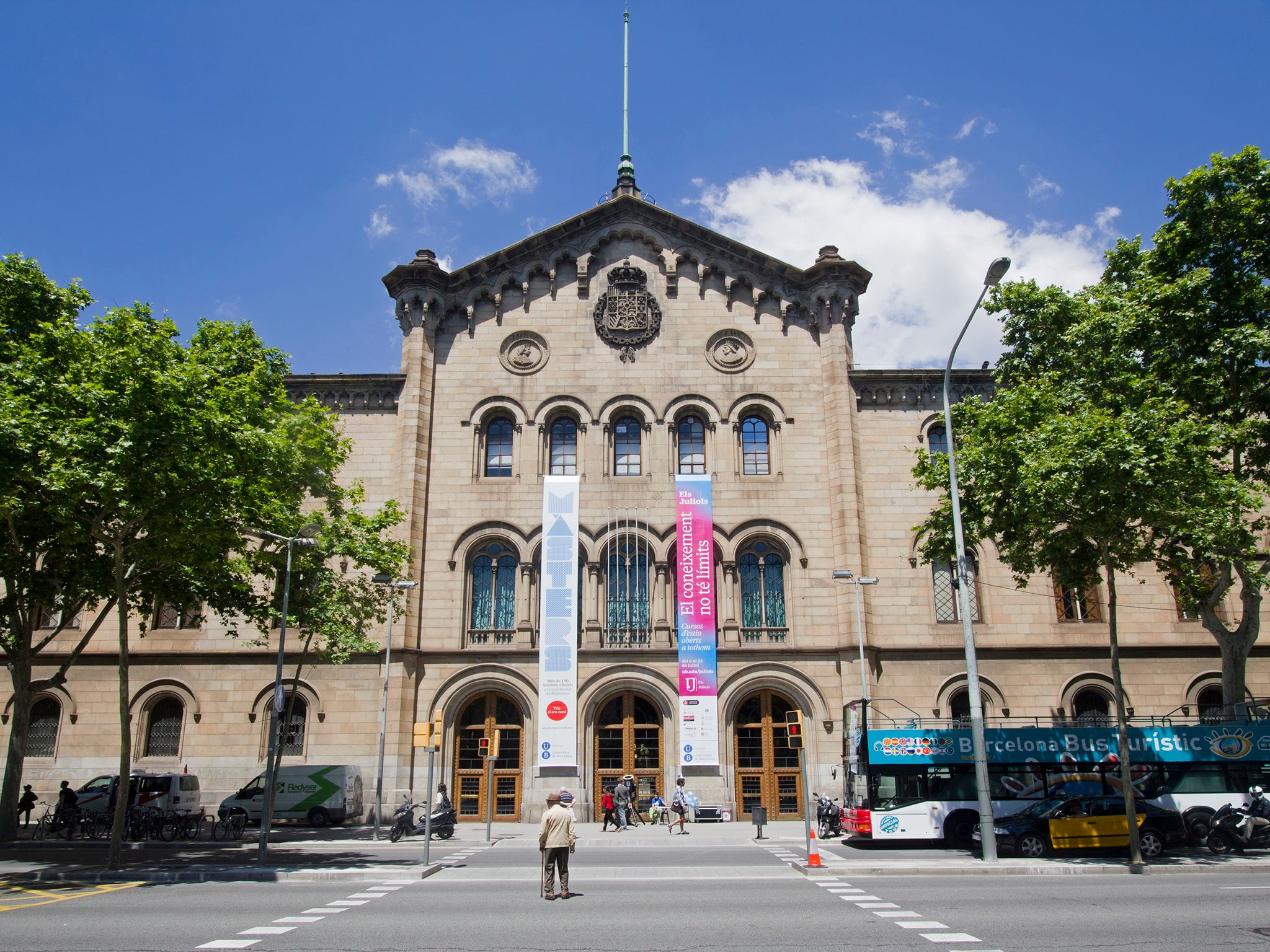Erasmus university international exchange scheme may ban British students after Brexit
'Maintaining Erasmus should be part of the Brexit negotiations,' says the NUS International Officer

Your support helps us to tell the story
From reproductive rights to climate change to Big Tech, The Independent is on the ground when the story is developing. Whether it's investigating the financials of Elon Musk's pro-Trump PAC or producing our latest documentary, 'The A Word', which shines a light on the American women fighting for reproductive rights, we know how important it is to parse out the facts from the messaging.
At such a critical moment in US history, we need reporters on the ground. Your donation allows us to keep sending journalists to speak to both sides of the story.
The Independent is trusted by Americans across the entire political spectrum. And unlike many other quality news outlets, we choose not to lock Americans out of our reporting and analysis with paywalls. We believe quality journalism should be available to everyone, paid for by those who can afford it.
Your support makes all the difference.Students in the UK could be shut out of a European exchange programme that benefits 15,000 every year because the UK voted to leave the EU.
The Erasmus programme allows students at British universities to study abroad in Europe for a year.
The scheme also allows thousands of students from the continent to come to the UK – meaning exclusion from the scheme could serve a severe blow to British universities.
There are 27,401 students on the scheme at university in the UK at the moment, with their fees paid by the EU.
Erasmus' UK director, Ruth Sinclair-Jones, said “we face a sad moment of uncertainty, after 30 years of this enrichment of so many lives,” The Observer reported.
Erasmus have received floods of questions about the continuation of the programme following the UK's decision to leave the EU, according to a statement on their website, but as yet it could not give any answers about what the future holds.
"We appreciate your concern for the programme but unfortunately you may have to be patient as definitive answers... may take time," it said.
Mostafa Rajaai, International Officer for the National Union of Students, told The Independent: "Erasmus has been extremely successful in creating academic, scientific and cultural exchanges across Europe.
"The many thousands who take part in the scheme every year are not the only ones benefiting from it.
"The program enriches the experiences of all students who have a much more diverse learning environment as a result of Erasmus.
"Maintaining Erasmus the way it currently functions with a possibility of growth for the program should be part of the Brexit negotiations to ensure such an important element of Higher Education in the UK is not erased altogether."
Norway, which is not a member of the EU, participates in the scheme, yet it accepts the free movement of people. Given immigration was a key issue in the vote to leave the EU, it is uncertain whether the UK will choose to accept this condition.
Since Switzerland voted to restrict free movement it has been refused entry to the Erasmus scheme.
The country has initiated its own scheme, but it is very expensive. The Universtities UK group told the Observer this means only well-off students in Switzerland can go to Europe to study .
"The great thing about Erasmus is that it made the experience and opportunity available to every student, whatever their family means,” it said.
Several UK universities have expressed anxiety about the consequences of the Brexit vote on the Erasmus scheme.
Central St Martins (CSM) art school in London has said they are “desperately concerned” about the future of the programme.
In a statement to CSM students shortly after the EU referedum vote, the head of the school, Jeremy Till said: “I think it is very hard to argue against the cultural and educational benefits of exchange and collaboration within Europe and beyond.
“We will therefore be making the strong case for the continuation of Erasmus, for unfettered entrance for European students to the UK, and for the continued engagement of UK universities in European research and teaching networks.”
Universities in the UK are already facing difficulty because of a dearth of funding for science and research grants.
The turnout of young people in the EU referendum was 64 per cent, a rate not seen for two decades. Those aged between 18 and 24 overwhelmingly voted to remain in the union.
Join our commenting forum
Join thought-provoking conversations, follow other Independent readers and see their replies
Comments